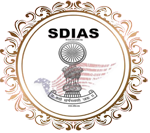India Journal (Feb 27, 2009)
Gandhiji’s Grandsons Discuss Non-Violence And Ethnic Co-existence at San Diego Event
DOUG RAMSEY in San Diego, California
Two of the four surviving grandsons of Mahatma Gandhi visited the campus of the University of California, San Diego on Feb. 14 to participate in the annual Mahatma Gandhi Memorial Lecture series – and they did so to a standing-room-only audience.
Rajmohan Gandhi and Arun Gandhi touched on issues ranging from non-violence and the humor of their grandfather, to current relations between India and Pakistan, and the co-existence of Muslim, Hindu and other ethnic populations within India.
The silver jubilee event was organized by the San Diego Indian American Society (SDIAS) and its Founder and Executive Director, Dr. M.C. Madhavan, to mark the society’s 25th anniversary. The event was hosted by the UC San Diego division of the California Institute for Telecommunications and Information Technology (Calit2), whose Director, Dr. Ramesh Rao, also sits on the governing board of SDIAS.
Nearly 250 members of San Diego’s Indian-American community attended the talks by the Gandhi cousins, both of whom are currently based in the United States. Rajmohan Gandhi is a Visiting Professor at the University of Illinois at Urbana-Champaign. Arun Gandhi heads a non-profit organization and teaches at Salisbury University in Maryland.
Rajmohan Gandhi gave the keynote address, drawing parallels between the lives of Mahatma Gandhi and Abraham Lincoln, the lecture coming just two days after the 200th anniversary of Lincoln’s birth. "Both were successful lawyers and both were often quoting from religious texts," said Gandhi. "Both were always ready to be killed and both were killed. Both abhorred war but great killing marked the last years of both their lives."
"But the main way in which the Lincoln and Gandhi stories are very similar, is about Lincoln and slavery, and Gandhi and untouchability," he added. "If you study how they approached those issues, it was very similar. Both had their critics, who said Lincoln was more passionate about keeping the union together than about abolishing slavery. And there were critics too of Gandhi that he did not attack the caste system as much as he should have. But I would argue that the reason Gandhi may have seemed less focused on abolishing untouchability was because it was not his sole aim: the independence of India was his aim; Hindu-Muslim unity was his aim; uplifting all the poor people of India was his aim. With all his passion for abolition of untouchability, it was not his sole aim."
Rajmohan’s cousin, Arun Gandhi, is the Founder and Director of the Gandhi Worldwide Education Institute, a non-profit organization, and taught recently at Salisbury University in Maryland. In his talk, he warned audiences not to be dogmatic about Mahatma Gandhi’s teachings. "What Grandfather wrote 80 years ago would not necessarily be relevant today," said Gandhi. "What he tried to give us was a philosophy that was very vibrant. It was the pursuit of truth and that must be evolving. We have to look at Grandfather’s philosophy and find our own solutions to non-violence in the world today."
He went on to say that peace must start with ourselves. "Basically this was Grandfather’s message," said Arun Gandhi. "We have to live what we want others to learn, and we have to practice it in the world. We cannot achieve peace unless we live it and make it a part of our own lives."
During the reception that followed the two Gandhis’ talks, Rajmohan Gandhi signed copies of his biography of his grandfather, "Gandhi: A True Story of a Man, His People and an Empire." The book was published in India in 2006, and has appeared in U.S., British and French editions.
While currently at the University of Illinois, Rajmohan Gandhi remains a research professor at the Centre for Policy Studies in New Delhi. He is a journalist and political activist, and served as a member of the Upper House of India’s Parliament and led the Indian government delegation to the U.N. Human Rights Commission annual meeting in Geneva. In addition to his comprehensive biography of his grandfather, Rajmohan Gandhi recently published a new work, "Revenge and Reconciliation: Understanding South Asian History."
The Gandhi Memorial Lectures in San Diego have taken place every year since the inaugural lecture by polio vaccine developer, Dr. Jonas Salk, in 1984. Since then, SDIAS has also awarded more than 360 Gandhi Memorial Scholarships – almost entirely funded by San Diegans of Indian origin – to outstanding San Diego area high school graduates, irrespective of national origin.

